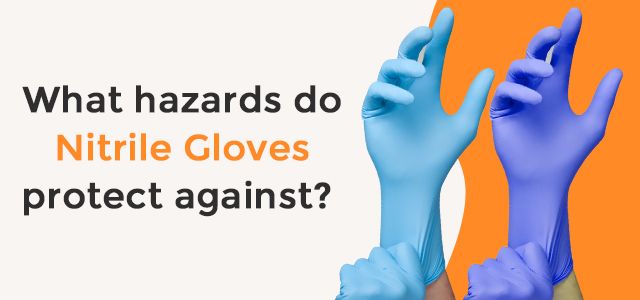Call Us: +8618816802430/+8618816800624/+8618816802041
Views: 53 Author: Pidegree Medical Publish Time: 01-28-2022 Origin: Pidegreegroup

It is important to wear gloves when working with hazardous chemicals and other materials because they protect our hands from infection and contamination.
Protective gloves should be selected on the basis of the hazards involved.
Compared with other gloves, Nitrile is a synthetic rubber material that offers chemical and abrasion resistance and is a very good general-duty material for gloves.
Thin, disposable, nitrile gloves are the most common gloves used when handling chemicals in laboratories;however, it is important to remember that thin nitrile rubber provides only limited chemical protection.
These gloves are intended to be used only as a physical barrier against brief contact with chemicals, and they need to be removed and discarded immediately after they become contaminated.
Glove materials are evaluated on three criteria when exposed to chemicals:
Breakthrough time: This is how long it takes to detect a substance inside the glove when the outside is exposed to a chemical. A glove that holds ups for greater than eight hours is considered excellent.
Degradation: This refers to the physical changes in the material such as swelling, cracking, softening or shrinking, which occur when it comes in contact with a chemical. A glove can exhibit chemical breakthrough even if it doesn’t show signs of degradation.
Permeation rate: This is the rate at which a substance passes through a glove material once breakthrough takes place. This rate includes absorption on the surface, diffusion through the material, and desorption on the inside surface.
It is important to remember that laboratory testing data does not take into account the effects of hand movement and body temperature. The actual protection will be less for a glove that is being worn and stressed during use.
Selecting the right thickness
Glove thickness is usually given in the unit mils, which is equal to one one-thousandth of an inch; therefore, a glove that is 10 mil, is 0.010 inches thick. A thicker gauge glove will provide more protection than a thinner glove of the same material, but often at the expense of touch-sensitivity and dexterity.
Double-gloving can be used to increase the total breakthrough time of a particular glove, but this increases hand fatigue and overheating and is recommended only for short-duration tasks.
Selecting the right size
A glove that is too small for your hand will be over-stretched, which stresses the material and makes it less protective. A glove that is too large may compromise dexterity and may also become more easily damaged during use. Use the manufacturer's size chart to choose an appropriate fit.
Removing gloves carefully
Glove removal (or "doffing") must be done carefully to avoid contact with the outside of the glove.
Avoiding cross-contamination
Soiled gloves can contaminate objects and surfaces, later exposing you to chemical hazards. When this occurs, you can unknowingly be exposed to chemical hazards. If you do experience an acute health effect, it can be difficult to determine which chemical was the source of the exposure.
Reduce the likelihood of cross contamination by:
Changing gloves immediately when contaminated and after each chemical-handling task
Discarding gloves immediately after use. Never reuse disposable nitrile gloves!
Removing gloves and washing hands before leaving the lab
Establishing designated glove-only vs. no-glove items such as pens, keyboards, instruments, drawers, door handles, refrigerators, and work spaces
Do not wear gloves in hallways, offices, break rooms, elevators, restrooms, or any other public areas!
Although nitrile gloves can protect against numerous chemicals, they are not resistant to all substances.
Make sure nitrile gloves are suitable for the substances that you anticipate them coming into contact with before purchasing them.
Most notably, nitrile gloves provide adequate protection from these common chemicals:
Acetone
Ethanol
Isobutyl
Isopropyl
Methanol
Email Us: sales@pidegreegroup.com
Add: NO.8 2nd Hezhan Street, Baiyun District, Guangzhou City, Guangdong Province, China.
Add:PT 583(Lot 942),Jalan Harmoni 3,Simpang 3 Ijok,45600 Bestari Jaya, Selangor D.E ,Malaysia.
Mob: +8618816802430/+8618816800624/+8618816802041